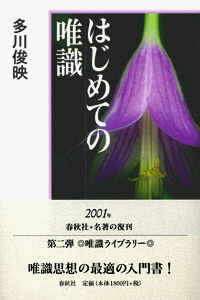

Living Yogācāra: An Introduction to Consciousness-only Buddhism, by TAGAWA Shun'ei. Translated with an Introduction by A. Charles Muller. Boston: Wisdom Publications. Paper, 151 pp. ISBN10: 0-86171-589-6. US $18.95
From the back cover:
Yogācāra is an influential school of Buddhist philosophy and psychology that stems from the early Indian Mahayana Buddhist tradition. The Yogācāra view is based on the fundamental truth that there is nothing in the realm of human experience that is not interpreted by and dependent upon the mind.
Yogācāra Buddhism was unable to sustain the same level of popularity as other Buddhist schools in India, Tibet, and East Asia, but its teachings on the nature of consciousness profoundly impacted the successive developments of Buddhism. Yogācāra served as the basis for the development of the doctrines of karma and liberation in many other schools.
In this refreshingly accessible study, Tagawa Shun'ei makes sense of Yogācāra's subtleties and complexities with insight and clarity. He shows us that Yogācāra masters comprehend and express everyday experiences that we all take for granted, yet struggle to explain. Eloquent and approachable, Living Yogācāra deepens the reader's understanding of the development of Buddhism's interpretation of the human psyche.
TAGAWA Shun'ei is the abbot of Kōfukuji, the head temple of the Hossō school of Buddhism in Japan.
A. Charles Muller specializes in East Asian Buddhism, working primarily in the areas of Korean Buddhism and East Asian Yogācāra. He presently teaches at the University of Tokyo.
[Note: This is a translation of the Japanese book Hajimete no yuishiki, which was reviewed on H-Buddhism in 2005 here: http://www.h-net.org/reviews/showrev.php?id=10143

Translator’s introduction vii
Foreword xxv
Chapter One: Yogācāra is… 1
Chapter Two: The structure of the mind 11
Chapter Three: The Functions of the mind 19
Chapter Four: Building up Experience in the latent area of the mind 29
Chapter Five: The Production of things 45
Chapter Six: The deep self absorbed in selfishness 61
Chapter Seven: The Variously assessing mind 77
Chapter Eight: The Function of the Five senses 95
Chapter Nine: Who am I? 101
Chapter Ten: The distance to buddhahood 117
Conclusion: Yogācāra today 131
Afterword 139
Suggestions for Further study 143
Notes 147
About the author 151